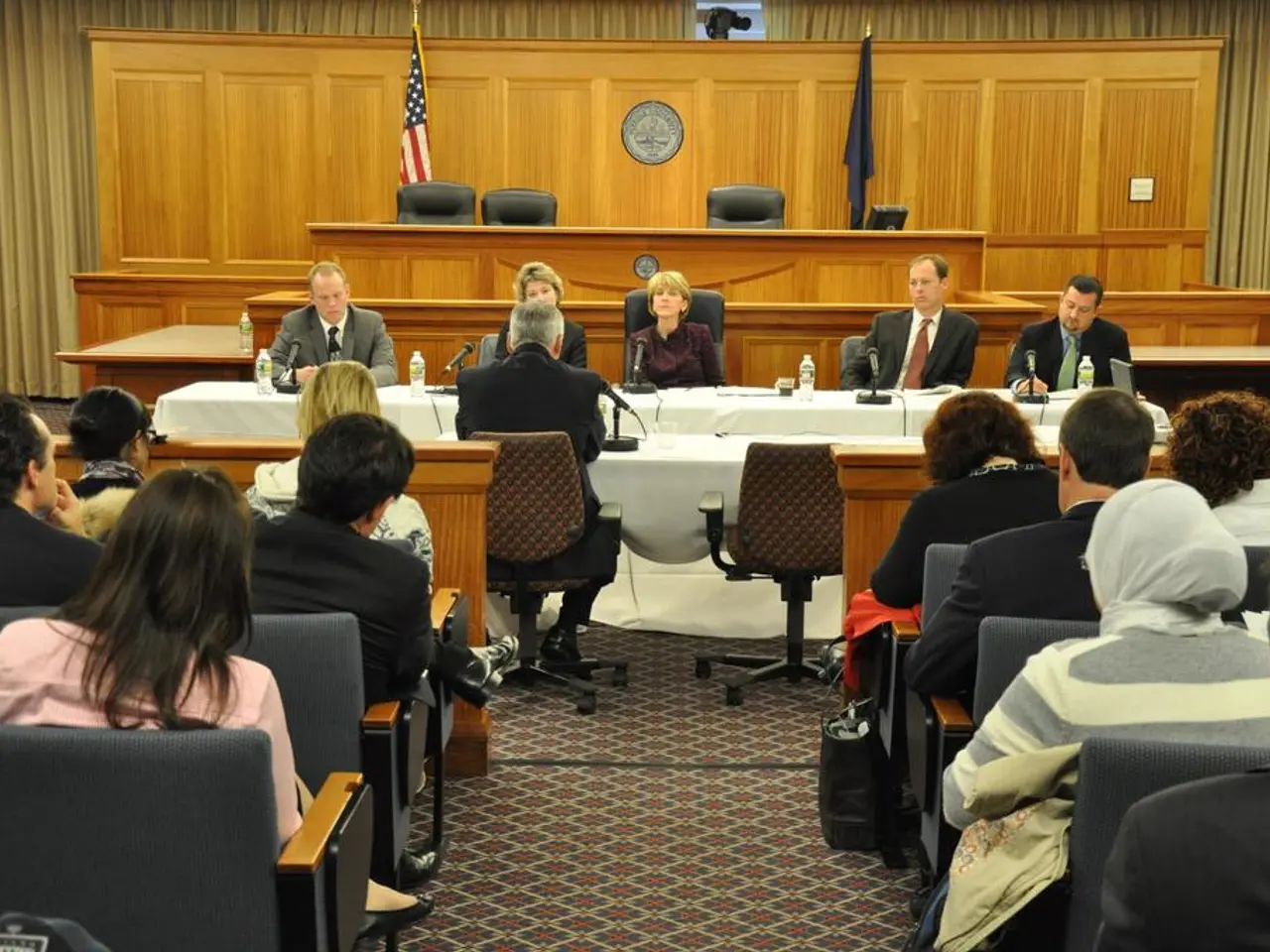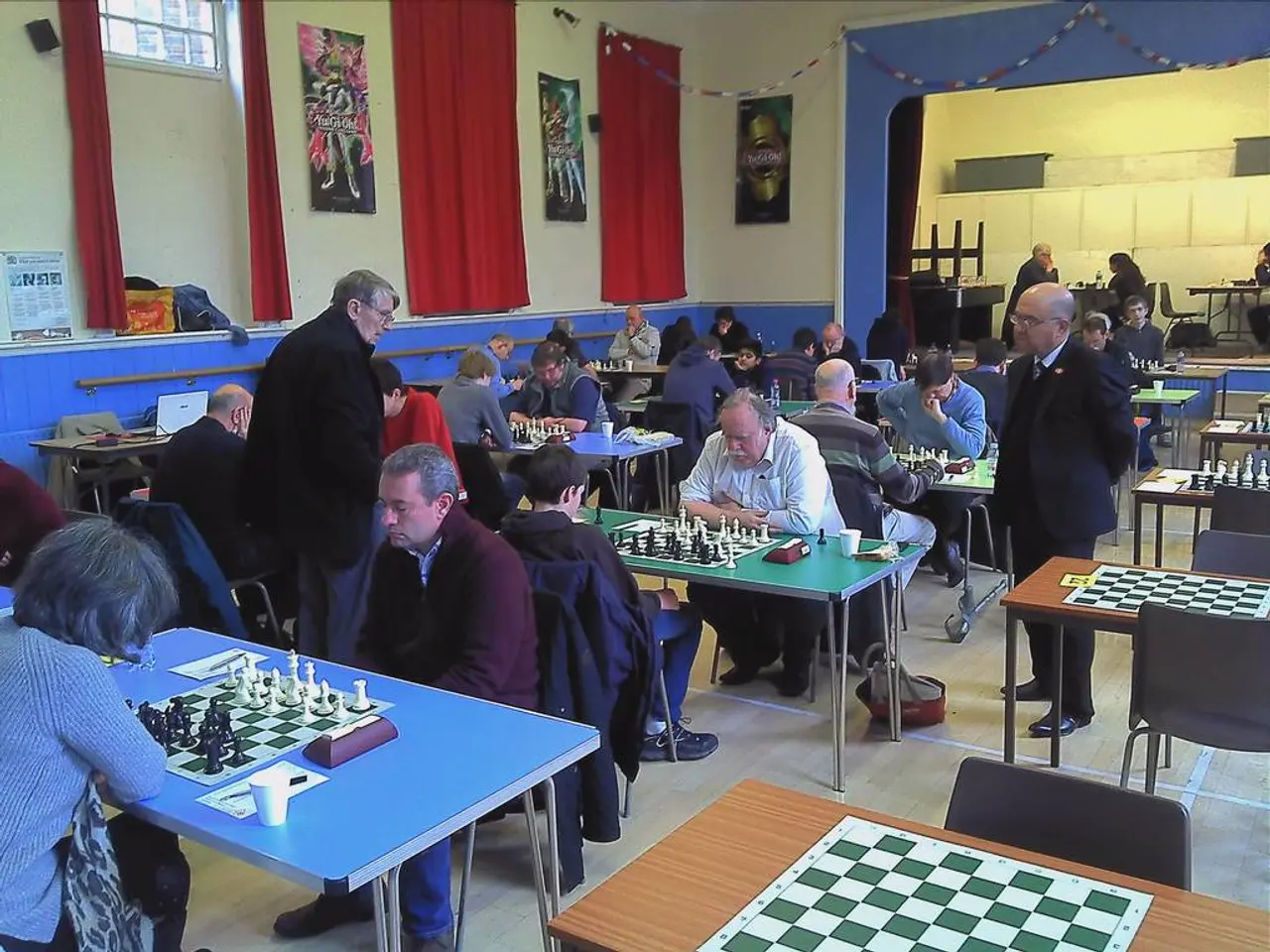Political figures from the Pheu Thai Party remain unshaken in the face of threats to sever ties with them
The Pheu Thai Party and its coalition partners face the potential dissolution due to allegations of consented interference and manipulation, as outlined in Section 29 of the organic law on parties. The main concern is that these actions violate this section of the law.
The Election Commission (EC) has completed its inquiry into the allegations of undue political influence by Thaksin Shinawatra on the Pheu Thai Party and its coalition partners. The findings are set to be submitted to Saeng Boonmee, the Election Commission Secretary-General, who will decide whether to refer the case to the Constitutional Court. If wrongdoing is confirmed, it could lead to the dissolution of the Pheu Thai Party and its six coalition partners.
The allegations primarily focus on a meeting at Thaksin's residence, Chan Song La house, where he reportedly proposed a candidate for prime minister following the Constitutional Court's ruling that ended Srettha Thavisin's ministerial role. Key figures from Pheu Thai, including its secretary-general Sarawong Thiengthong, have dismissed these allegations as unfounded. They maintain that people seek Thaksin's counsel out of respect, but he does not control party decisions.
The meetings, most of which are also part of the current coalition, and Thaksin Shinawatra are said to have taken place at his Chan Song La residence on the day Srettha Thavisin was dismissed as prime minister by the Constitutional Court last year. The allegations against the Pheu Thai party and the coalition partners involve Thaksin Shinawatra having undue political influence over them. During these meetings, discussions about possible replacements for Mr. Srettha and interference in the selection of a prime ministerial candidate are alleged.
Despite these developments and potential legal consequences, Pheu Thai leaders remain unconcerned about the threat of dissolution. Pheu Thai Party secretary-general Sarawong Thiengthong stated that Thaksin's leadership and work experience, particularly his 17 years abroad, are well-known and respected. He further clarified that people seek Thaksin's counsel out of reverence, but this does not mean he controls party decisions.
The Election Commission's review of six petitions calling for the dissolution of Pheu Thai and its coalition parties underscores the seriousness of the allegations. If proven, the Pheu Thai party and the coalition partners could face dissolution, which would potentially disrupt the current government. However, the Pheu Thai Party and several coalition partners maintain their innocence and express confidence in the fairness of the legal process.
- The ongoing investigation by the Election Commission (EC) concerning the alleged political influence of Thaksin Shinawatra on the Pheu Thai Party and its coalition partners involves policy-and-legislation matters, as the potential violations of Section 29 of the organic law on parties are at the heart of the allegations.
- The political landscape is filled with high-stakes politics, as the dissolution of the Pheu Thai Party and its coalition partners due to the alleged interference and manipulation could significantly impact the general news narrative and the country's political landscape.






